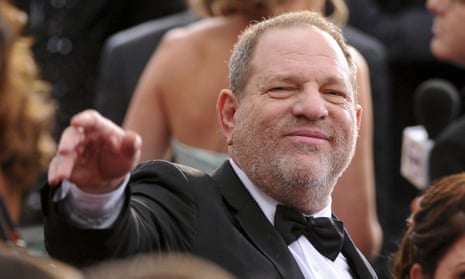Me too may be another hashtag. With good intentions. But this time it is showing the ubiquity of sexual assault. “If all women who have been sexually harassed or assaulted wrote ‘Me too’ as a status, we might give everyone a sense of the magnitude of the problem,” said the actor Alyssa Milano. Well, now it’s there all over social media if you choose to see it. Women saying “me too”, often describing their first sexual assault, some when they were not yet 12.
The experience of sexual harassment is not a one-off; it is ongoing – as I wrote last week. It’s the backdrop to many women’s lives. We are numbed by it because to think about it all the time would immobilise us.
The reaction to the Weinstein harassment allegations is for some a sudden anger, for others a slow burn. Day by day, more is “known”. The more it is claimed that other people were aware – his assistants, big stars, small stars, all the surrounding servants/scumbags – the greater the effort in the popular press to isolate this behaviour and locate it in one man. So the tabloids are calling him a beast or a monster, usually alongside a picture of young, half-naked women. God forbid any link should be made between his behaviour and the way women are represented. God forbid any link should be made between him and the way other men behave.
Contain him in his repulsiveness, and the more extreme he appears to be, the less like other men.
So all these women saying “me too” – who have they been assaulted by? No one famous. No one who guaranteed them an Oscar. Not big, powerful men but ordinary men with more power than women. Enough power to shut them up. For this is the way of the world.
Can those ways change? Is something actually happening here? I hesitate, but a connection may finally be being made between the paucity of women behind the camera and the way women are shown in front of it. The absolute imbalance of power at the top of the dream factory is hardly news.
However, once women start talking, there is always already too much information. After Savile, after Rotherham, senior police officials told us that there is in fact an epidemic of child abuse, that the numbers are so high the police simply cannot prosecute every case. The same applies to domestic violence – and so we become aware of it but it also somehow slips down our cultural consciousness.
What will keep this story alive is that it is a celebrity story. Women being sexually assaulted is a staple of much film and TV.
What “me too” does is bring it back into the home, the school, the shop, the street, the office where women have been harassed. It makes it small screen not big screen. It makes it ordinary and everyday and seen.
There are those who refuse to see. There are the men who can suddenly relate to all this because they have a daughter. There is Woody Allen, of course, who having married his ex-partner’s adopted daughter, must have some extra special insight on this score and so feels “sad” for Harvey “that [his] life is so messed up”. There is Tarantino who worked with Weinstein for 25 years but had no idea and now has to deal with his own “pain” and “anger”. We have comments from the likes of Arron Banks advising women on how to react. Banks, let’s not forget, was arrested on suspicion of harassment of a younger woman in 2012. He was not charged, but was issued with a harassment notice and “words of advice”. We hear from Björk about a certain director making her life unbearable.
We watch these guys scuttling round. Weinstein’s brother describes his “waking nightmare”. James Corden apologises after making light of the allegations. All this collusion. All this male entitlement. All these men who still can’t listen.
A hashtag is just a tiny symbol against the big guns, but now we are talking about possible crimes instead of just bad behaviour.
Women move out of shame and into anger.
This is a prerequisite for any change to happen. Male power is not laid low by the bringing down of one man. As long as we have Donald Trump in the White House ranks will close. But just for a moment there is a gap where we see things could be different. Many have waited a long time for this. Don’t let it go now. Keep saying “me too” because we are fighting not one guy here, but a system that can only be challenged by collective rage, not individual shame.

